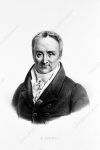Human beings are deeply logical. This is a contrary statement to many current pronouncements that appeal to the ‘animal’ or ‘irrational’ nature of human psychodynamics, or motivation. In fact, the very possibility of coherent psychotherapy, and of quality education, depends on the understanding of human beings as fundamentally logical and internally structured in a consistent normative way. Even when we appear completely erratic, irrational and out of control, as happens from time to time in psychotherapeutic encounters, we remain fundamentally logical. In such cases, there is an undercurrent of our motivation that is logical, however it is based on values and other normative assumptions that are unacceptable to us, so we vehemently deny that these are our true motives and values. This is the very crux of psychoanalysis.
To properly understand the logic of a disorder, or the logic of any kind of disturbing choice, one must bear an open mind. Common assumptions about what ‘must’ be the case in a certain culture must be cast aside. For example, the assumption that all children love their offspring, or that people fundamentally always look to attain pleasure and avoid pain, or that hatred or evil are just the lack of the opposite emotions and values, namely love and goodness, all need to be questioned in a proper psychoanalytic approach. This is all the more important seen that the analysand, the person being treated, adopts more or less the same cultural norms and refuses to accept their own deviations from these norms, which they, then, ‘push’ into the unconscious. Thus, for example, a person may not be prepared to face up to the fact that they are revolted by their close ones, their family members, who, at least ‘objectively’ speaking, have in no way really wronged that person; thus the person will sometimes subconsciously punish their family members, often by exhibiting extreme vulnerability, by being dysfunctional in ordinary situations, even by developing a psychosis. Only in situations where the repression weakens, when one is treated as fragile and ill, and thus allowed to say and articulate things one would not normally be tolerated in expressing, one might actually show indications of animosity to their family. The fact that family members do not see any reason why their close sibling should hate them does not change the facts: the internal logic of animosity is there, within the person, and it needs to be carefully excavated without the blocking assumptions of social normativity.
This is why the psychoanalytic process is painful, unpleasant. The narrative that gets excavated reveals to the person, and to the therapist, unpleasant facts about who the person really is. That is, at the same time, the reason some analysands would rather be hospitalized, imprisoned or socially rejected than expose their unconscious narrative: their own normative sanction against their repressed values is stronger than that by society: they would rather accept the victimhood of their assumed role, as patients, inmates, outcasts, than the shame and guilt associated with the recognition of their deep seated identity.
The above reasons point to why psychoanalytic work is fundamentally interpretative, philosophically hermeneutical; why it depends on the therapist’s (‘analyst’s’) philosophical prowess and ability to effectively use the interpretative tools such as the Hermeneutic Circle, the Horizon of Interpretation, and, first of all, the principles of modal logic, which very few psychotherapeutic schools are familiar with. It is this undercurrent of logic below the person’s conscious choices and beliefs that empowers psychoanalytic treatment. This is why philotherapy is so closely associated with philosophically informed psychoanalysis, and why integrative psychotherapy rests squarely on modal logic as the foundation of all psychotherapeutic treatment.
The same principles apply to in-depth philosophy of education. Leadership in education, both in the training of educators and in education management, requires a therapeutic approach which will at the same be individualistic for students, and sufficiently universal to recognize the broad unconscious structures that impede fast and effective learning and understanding. This is why philotherapeutic theory and practice sees education in a revolutionary way, as a primary field of therapeutic endeavor that is both preventative and corrective.
The Institute for Practical Humanities is the training hub for the integrative psychoanalytic approach in therapy and education. More information at:



Average Rating